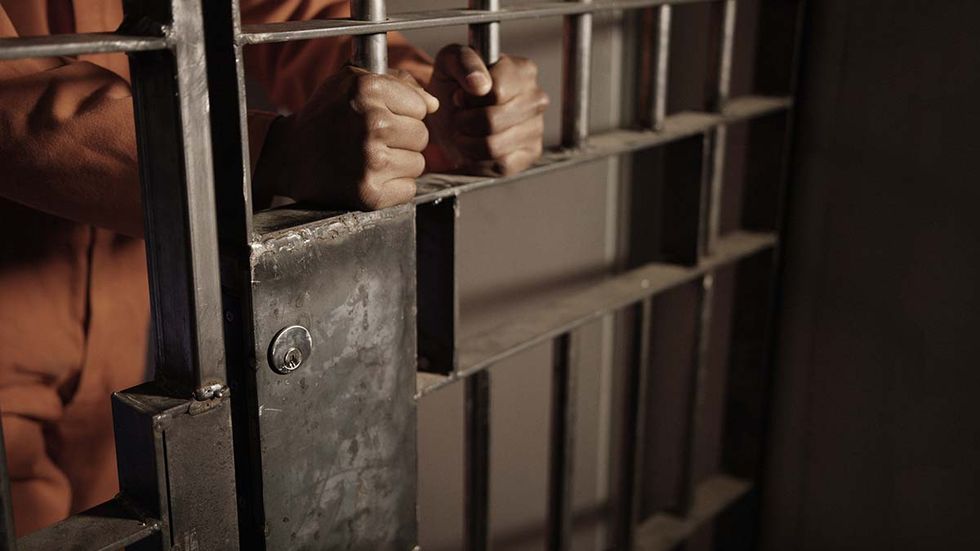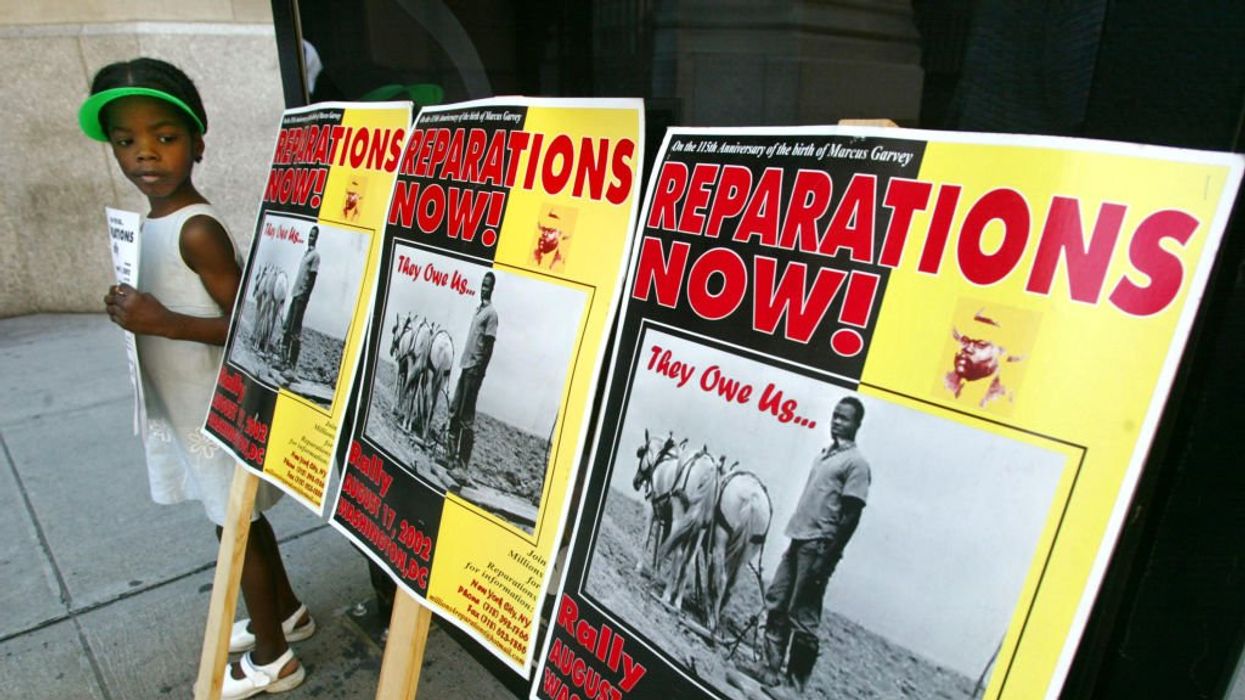
© 2024 Blaze Media LLC. All rights reserved.
One of the more odious myths peddled in pursuit of jailbreak legislation is that our criminal justice system is incarcerating too many African Americans. They posit an outrageously misleading disparate impact theory to suggest that the system is racist, and is the source of the problems in inner cities. As if the tougher sentences induced the violence in major cities and not the other way around. In fact, it is the tougher sentences that have led to a miraculous drop in crime, a trend which has incidentally been reversed by the de-incarceration agenda in recent years, and is hurting black communities more than anywhere else.
During the second presidential debate this year, Hillary Clinton asserted that “it's just a fact that if you're a young African-American man and you do the same thing as a young white man, you are more likely to be arrested, charged, convicted, and incarcerated.” She unflinchingly declared the presence of “systemic racism in our criminal justice system.” A 2012 book, The New Jim Crow: Mass Incarceration in an Era of Colorblindness, has become the gospel for this agenda. A number of Republican promoters of jailbreak have posited the same theory.
The problem is they are having a 20-year delayed reaction. In fact, incarceration across the board is going down in state and federal prisons (and incidentally, crime is going up!), but the numbers are particularly jarring among … young Americans! In fact, due to a much-ignored increase in incarceration of older people, the dramatic decline of young people getting arrested is obfuscated by the data. Earlier this week, Keith Humphreys, a noted psychiatry professor at Stanford University, brought attention to data from the Bureau of Justice Statistic showing incarcerations of 18-19 year olds has declined by 40 percent from 2003 to 2013.
Source: Bureau of Justice Statistics
As you can see, to the extent there is a dramatic increase in incarceration (although not enough to bend the overall downward trajectory of all demographics), it is among people above the age of 45.
What gives? Humphreys has a few theories:
First, ever the trendsetters, baby boomers are somewhat more criminally active in late life than were previous generations. Second, the many state-level reforms designed to reduce incarceration were implemented long after the “tough on crime” era in which many older inmates were given protracted sentences. Third, older convicted criminals by definition have had more time than younger ones to accrue long criminal records, which often leads judges to mete out longer sentences for a particular offense.
And which young adults are experiencing the sharpest decline in incarceration?
As Humphreys noted earlier this year, the imprisonment rate for black females has dropped by a whopping 47 percent since 2000, and it has declined by 22% among black males over the same time — a 20-year low. Meanwhile, the rate among white women has increased by 56%. Given that young blacks commit a disproportionate share of violent crime, obviously such a precipitous decrease has reduced the overall incarceration rate, despite the increased incarceration trend of whites and older people.
Also, further portending a downward trajectory of incarceration in the coming years, according to the Transactional Records Access Clearinghouse (TRAC), federal prosecutions have dropped 25.4 percent from November 2010 through November 2015.
For those who believe in de-incarceration as an end to itself, this might be welcome news. For those who live in my neighborhood outside of Baltimore and are experiencing the worst crime wave in a generation, primarily perpetrated by those in their late teens and early 20s (who know they will get a slap on the wrist), de-incarceration of those who belong in jail is a bad thing. The already loose laws against juvenile offenders have terrorized many neighborhoods, yet the bipartisan jailbreak legislation will create a dramatic momentum of leniency for juveniles at every stage of the criminal justice system.
Either way, the fact is incarceration is going down dramatically and disproportionately among young African Americans. Thus, one of the central pillars of “criminal justice reform” is built upon an utter lie. As Humphreys concluded in his August report, “the widespread belief that black incarceration gets worse every year is not only profoundly wrong, it may also be crushing to the spirit of the many reformers who are striving to create a safer, more equitable and freer society.”
At its core, we don’t have an incarceration problem in this country, nor do we have a “Jim Crow” justice system. We have a broken culture and family structure that is endemic among, but not exclusive, to inner cities. It’s time to treat the ailment, not the symptoms, especially when the symptoms are “improving.” Unfortunately, black victims will be the most harmed by the dismantling of more aggressive policing, tougher sentencing, and more incarceration.
Want to leave a tip?
We answer to you. Help keep our content free of advertisers and big tech censorship by leaving a tip today.
Want to join the conversation?
Already a subscriber?
Blaze Podcast Host
Daniel Horowitz is the host of “Conservative Review with Daniel Horowitz” and a senior editor for Blaze News.
RMConservative
more stories
Sign up for the Blaze newsletter
By signing up, you agree to our Privacy Policy and Terms of Use, and agree to receive content that may sometimes include advertisements. You may opt out at any time.
© 2024 Blaze Media LLC. All rights reserved.
Get the stories that matter most delivered directly to your inbox.
By signing up, you agree to our Privacy Policy and Terms of Use, and agree to receive content that may sometimes include advertisements. You may opt out at any time.






